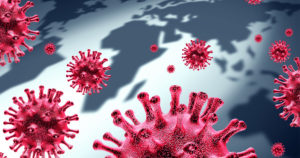Pennsylvania’s Response to COVID-19-Update
March 19, 2020 An order issued by Pennsylvania Governor Tom Wolf ordered that all non-life-sustaining businesses must close their physical locations and residents have been instructed to shelter in place. If establishments fail to comply with the statewide order, enforcement consequences could include fines, citations, and license suspensions. State residents have also been granted an extension for filing and paying taxes. The new file date is July 15th, 2020, a 90 day extension from the original April 15th deadline.
An order issued by Pennsylvania Governor Tom Wolf ordered that all non-life-sustaining businesses must close their physical locations and residents have been instructed to shelter in place. If establishments fail to comply with the statewide order, enforcement consequences could include fines, citations, and license suspensions. State residents have also been granted an extension for filing and paying taxes. The new file date is July 15th, 2020, a 90 day extension from the original April 15th deadline.
According to the Pennsylvania Department of Health, the state now has at least 479 confirmed cases of COVID-19, a serious and contagious respiratory infection caused by the coronavirus. Many states across the country have implemented strict social distancing and “shelter in place” policies to guard against the rapid spread of the disease, but are struggling to keep the number of cases low. The infection usually causes mild to severe respiratory symptoms like shortness of breath, fever, and cough; typically symptoms appear 2-14 days after exposure. In immune compromised individuals however, such as people with cancer or those with other chronic conditions (e.g. diabetes, asthma, etc.) the complications can be fatal.
Shelter In Place Order
You may have never heard of a shelter in place order before – and some people still may not be completely sure what the order actually means. Shelter in place orders are used to limit resident movement during emergencies, and they are one of the strictest allowable measures aside from lockdowns or a full quarantine. The order requires residents to stay in their homes aside from the following activities:
- Getting groceries,
- Exercise (e.g. walking, cycling, etc.) in public spaces – but you must maintain 6 feet of space between yourself and other people.
- Going to the bank, and:
- Receiving medical care
Other effective ways to help slow the spread of the COVID-19 virus is to wash your hands frequently, avoid touching your nose, eyes, or mouth, covering your mouth when coughing or sneezing, cleaning surfaces frequently, and avoiding people who you think may be sick.
What to Do If You Think You May Be Sick
Right now, there is a lot of information coming out every day about the coronavirus and its effects on the United States and other countries in the world. Although these are scary times, it is important to try your best not to panic. Staying calm, informed, and safe is very important…especially in times of need. According to the Centers for Disease Control and Prevention (CDC), certain people face a higher risk for developing serious COVID-19-related medical complications. People at a higher risk for severe illness include:
- Pregnant women,
- Individuals with asthma, diabetes, or heart disease,
- Immuno-compromised people, and:
- Older people
The Pennsylvania Department of Health recommends that people experiencing mild symptoms stay at home. Staying at home (if possible) is one of the best ways to prevent spreading the illness to other people. If individuals with mild symptoms begin to experience major ones, they should call their health care provider. If someone does not have a health care provider, they can call the local health department at 1-877-PA-HEALTH. PA is also prioritizing testing for people who are:
- In congregate care settings (residential treatment facilities, nursing homes),
- Extremely ill for no known reason,
- Health care providers, and:
- People in contact with known cases
In case of an emergency – like if you are experiencing emergency warning signs for COVID-19 – the CDC recommends getting immediate medical care and calling 9-1-1. Emergency warning signs for COVID-19 include having difficulty breathing, new confusion or the inability to arouse someone, blueish lips or face (cyanosis), and persistent pain or pressure in the chest.
To stay up to date with important health and safety updates for residents of the state of Pennsylvania, please visit this link.
For nationwide updates from the CDC, click here.
We will continue to update this story as it develops.
Philadelphia Personal Injury Lawyers at Galfand Berger, LLP Representing Injured Individuals Since 1947
If you have a legal question or concern, please contact our Philadelphia personal injury attorneys. With offices located in Philadelphia, Bethlehem, Lancaster, and Reading, Galfand Berger serves clients throughout Pennsylvania and New Jersey. To schedule a consultation, call us at 800-222-8792 or complete our online contact form.
 Google Screened
Google Screened
